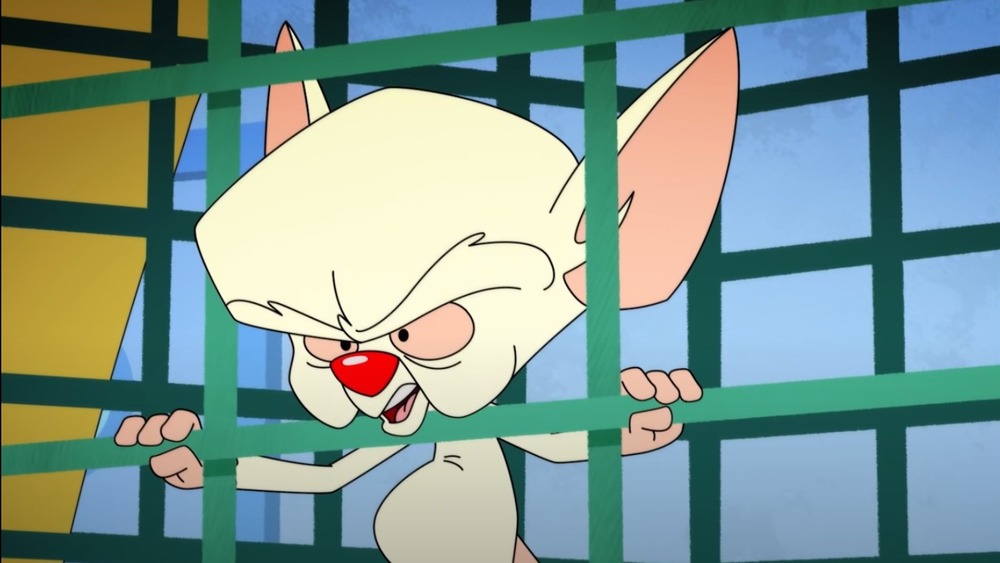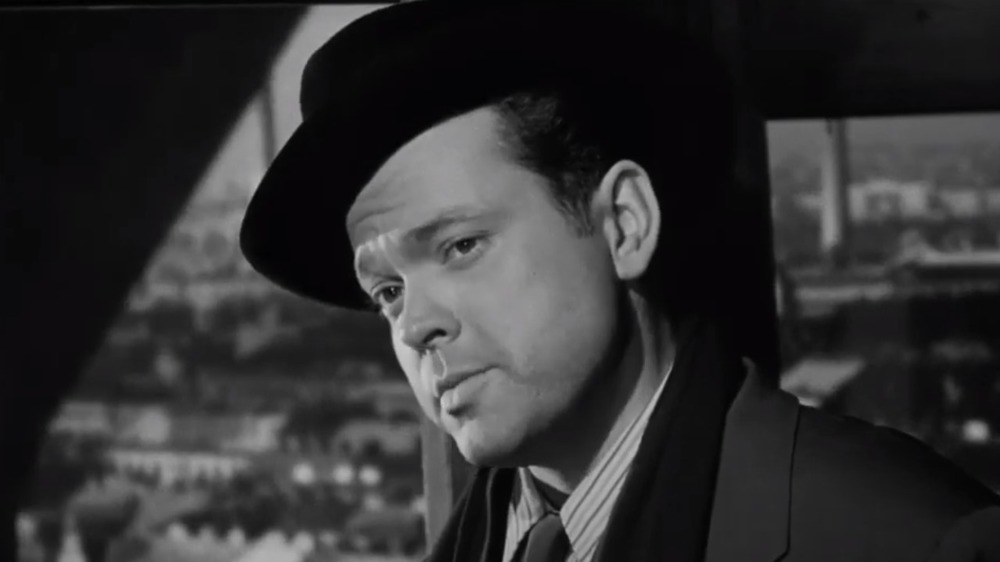The True Inspiration Behind The Brain's Voice On Pinky & The Brain Revealed
Pinky and, in equal measure, the Brain, have been largely quiet since their series went off the air in 1998. Considering that the average Mus musculus has a life expectancy of two to three years in captivity, the odds of ever hearing from them again seemed bleak.
And yet, against all odds, they return. No doubt as a result of their being laboratory mice whose genes have been spliced, Pinky and the Brain (Brain, Brain, Brain, Brain) are set to return to screens via Hulu's Animaniacs reboot on November 20, 2020, with performances coming courtesy of original voice actors Rob Paulsen and Maurice LaMarche. In 2012, Paulsen told the Ventura County Star that Pinky's voice came from a love of Monty Python, and that even though the producers hadn't originally envisioned the character with a British accent, "Mr. Spielberg thought it worked." You can't argue with results like that.
On the other side of the cage, there's the Brain, rodentdom's most enthusiastic Machiavellian presence since The Hitchhiker's Guide to the Galaxy. Maurice LaMarche, who voiced the character throughout Animaniacs and the duo's spinoff program, has become one of the workingest actors in animation, providing vocals on Futurama, Zootopia, Rick & Morty, and literally hundreds of other shows, movies, and video games. His take on the Brain, probably his most widely recognized character, came from two places: the golden age of Hollywood, and the Animaniacs writers' room.
Citizen Brain
LaMarche started out as a standup comic, specializing in impressions. Interviewed by The New York Times in the days leading up to the new Animaniacs series, he described his obsession with one particular celebrity impersonation: certified weirdo Orson Welles.
"I first became fascinated with Welles as a boy," he told the Times, "when I saw the James Bond spoof Casino Royale. Later, I was riveted by the then-relatively unknown 'Frozen Peas' outtakes, from a series of commercials Welles did. His delicious contempt for being directed and the withering eloquence with which he expressed it to the directors both delighted and horrified me." If you haven't listened to Orson Welles shout down the director of a commercial for frozen peas, it comes highly recommended, as does his deeply personal endorsement of California champagne.
Continuing, LaMarche recalled, "I read for every character [on Animaniacs], but Brain looked so much like Welles to me, it seemed to be a natural to try his voice first. I had the hubris to think they'd actually drawn him that way for me. Anyway, Brain was actually based on Tom Minton, who wrote on Tiny Toons, and no one was thinking Welles."
Then again, that conflicts with LaMarche's interview with AV Club from 2012, where he stated, "I always say, 'The Brain isn't Welles.' The Brain is 70 percent Welles, 20 percent Vincent Price, and I don't know, there's another 10 percent of something else in there. I don't know what. Some people think it's Peter Lorre. I don't know what it is. So I don't think of Brain as Welles, but people do."
The exact ingredients that went into Brain's voice may never be uncovered, but there's one thing we do know is what he'll be doing tonight, and every night, Pinky: try to take over the world.

